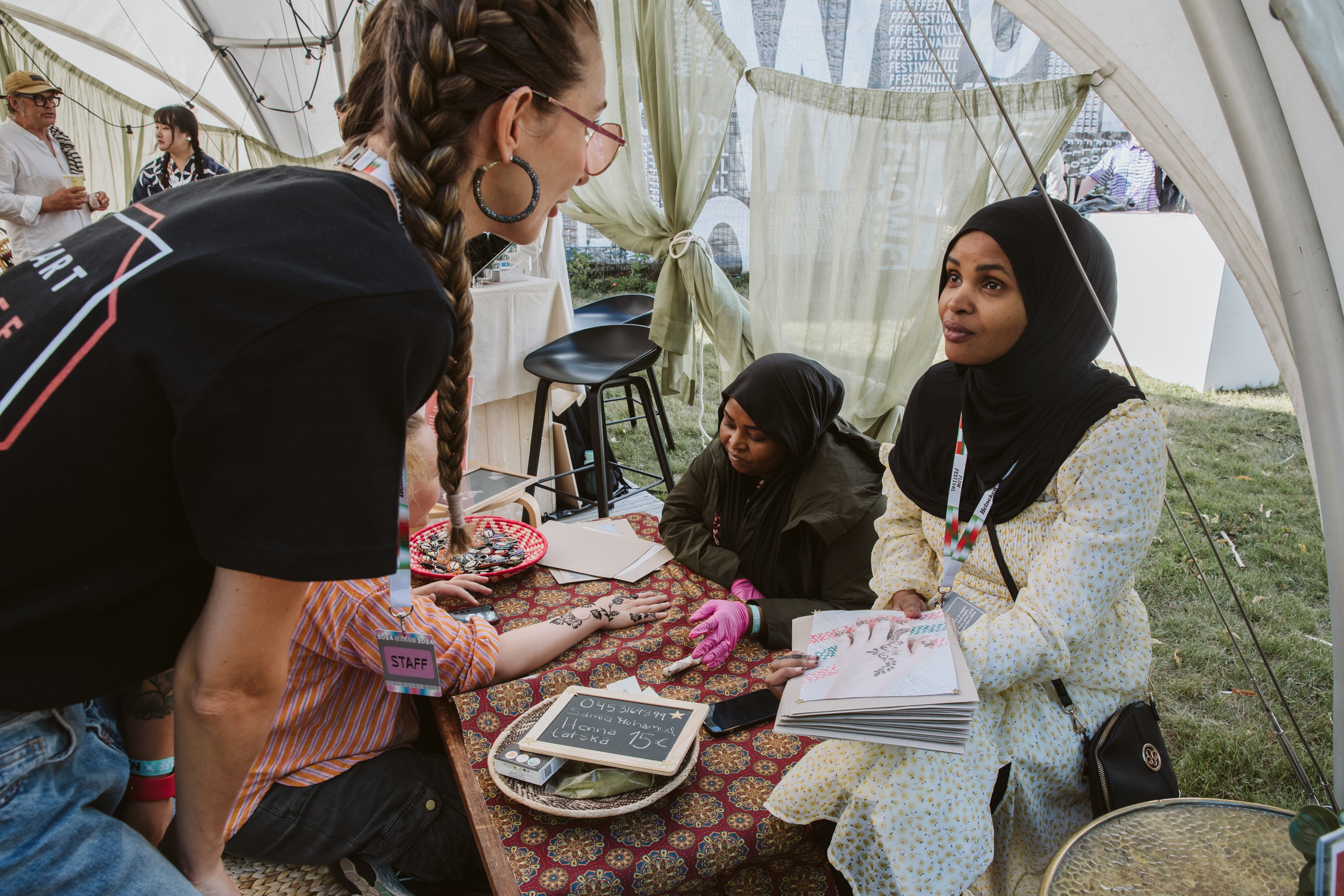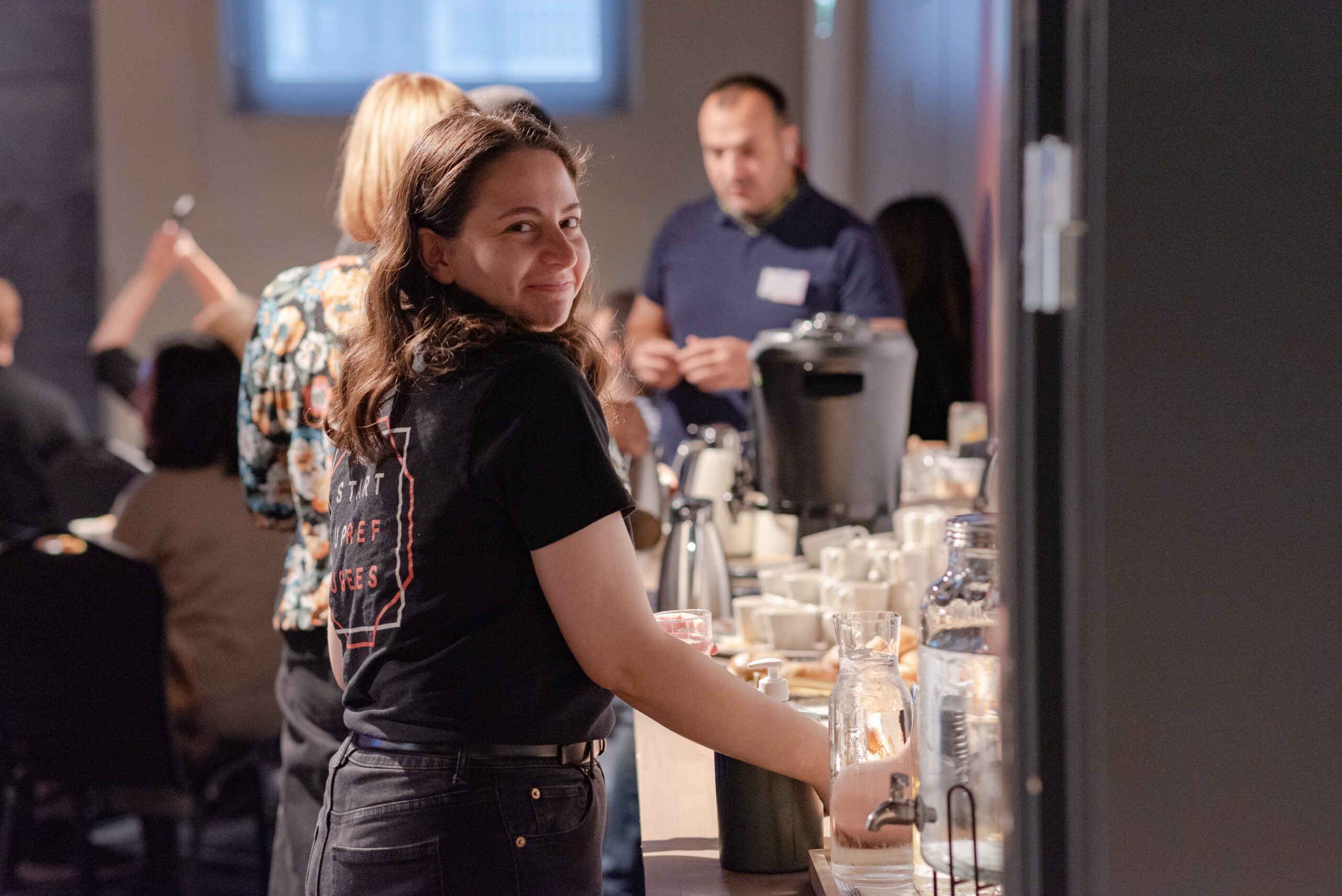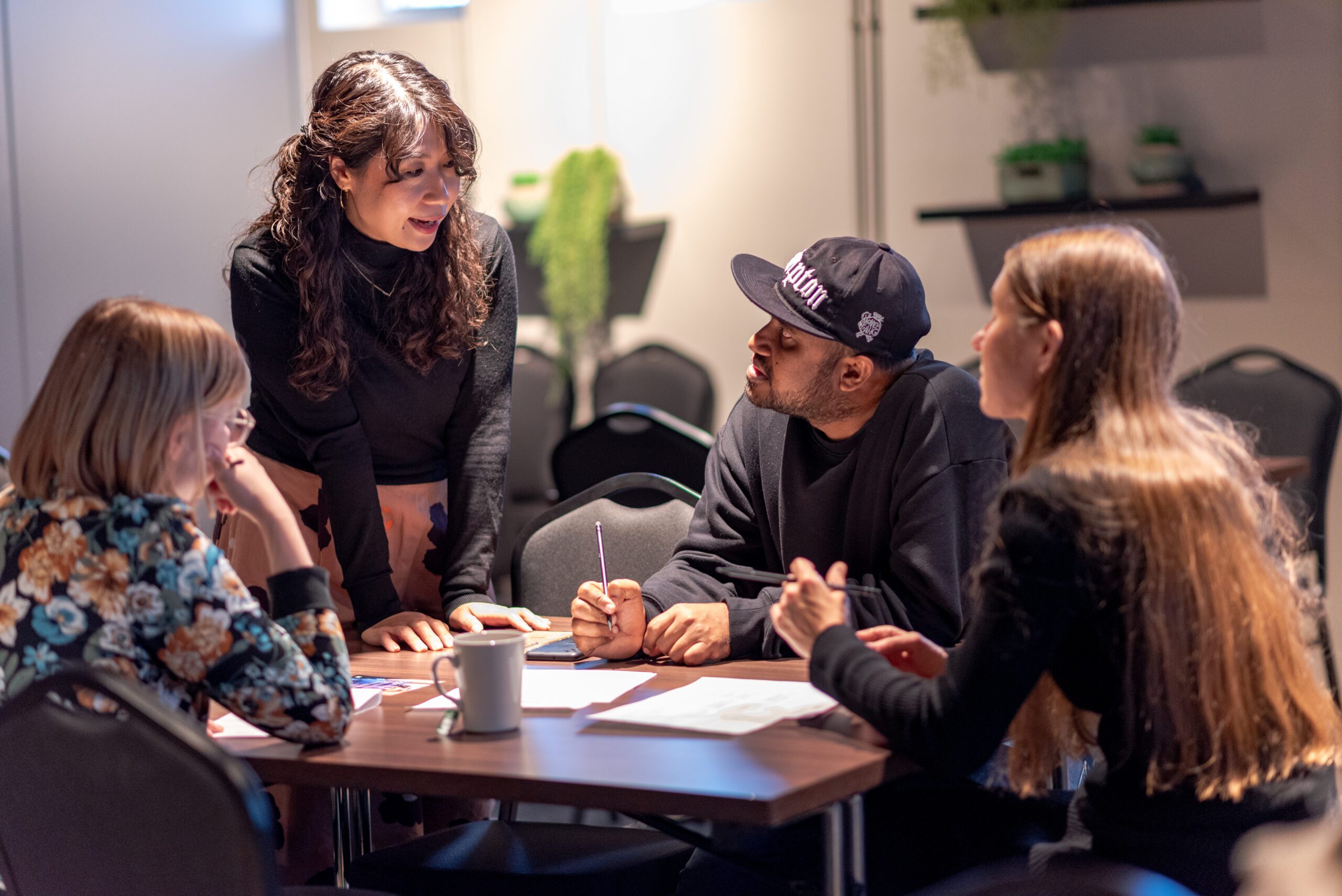
Diverse Talents
The Diverse Talents – diversity to the labour market project promotes the employment of foreign-language speakers and increases the employers’
readiness for recruitment, receptiveness and expertise in issues related to diversity. Also, it addresses the labour shortage in the capital region.
The number of refugees and immigrants is increasing in European capitals. In the upcoming years, in the capital region, there will be even a greater need for quick ways to employ and integrate those who have just moved to the country.

Work Force
Work Force project boosts the employment of newcomers in Northern Ostrobothnia, focusing on the cities of Oulu, Pudasjärvi, Raahe and Kuusamo. The project is conducted by Startup Refugees in cooperation with a network of companies, public and third sector actors as well as volunteers.
The project aims to provide solutions for the unemployment of newcomers in the region, labour shortage issues and the lack of available employment services for asylum seekers, refugees, and persons residing with the temporary protection status fleeing from Ukraine.

AMBITIOUS
AMBITIOUS Erasmus + aims to develop training materials and programs to support migrant entrepreneurs in creating innovative business ideas and customer-centric, sustainable businesses. Another objective is to equip trainers to train migrant entrepreneurs in innovation, business idea testing and online learning.
Together with Startup Refugees (Finland) Forward·Inc (Netherlands) and PLACE (France), we are aware of the needs of migrants and the skills and knowledge they require to succeed as entrepreneurs.

Arctic Mentors
The Startup Refugees Arctic Mentors project promotes immigrant employment in Lapland by improving recruitment readiness and diversity expertise among employers. It addresses labor shortages and enhances the ability of social enterprises to serve as employment pathways for migrants.
Key challenges include migrants’ lack of professional networks and language skills, leading to underemployment despite a shortage of skilled workers in Finland. The project provides mentoring to 200 migrants and collaborates with 20 companies to form 40 mentor-mentee pairs, aiming for 60 migrants to secure employment.
The project targets unemployed migrants and businesses in sectors with labor shortages, like tourism and logistics. It integrates traditional and reverse mentoring to support a diverse workforce, strengthen professional networks, and encourage businesses to embrace diversity.

SISU Business
Leader Viisari ry, Northern Central Finland Vocational College (POKE), Äänekoski Entrepreneurs Association, and Startup Refugees have launched an information-sharing project called SISU Business, funded by the EU’s rural development program. The project aims to create new tools and share knowledge about entrepreneurship in rural northern Central Finland. The goal is to support residents’ entrepreneurial aspirations and enhance the well-being of entrepreneurs.
The region consists mainly of sparsely populated rural areas, where the challenges of entrepreneurship differ from those in cities due to long distances and the service structure. The main goal of the SISU Business project is to raise awareness of new business models, principles of sustainable development, the use of digital tools, and the unique features of rural entrepreneurship.

UPBEAT
The UPBEAT Project aims to empower young newcomers (ages 15–29) in Finland and Estonia with AI-assisted training programs designed to support aspiring entrepreneurs and light entrepreneurs. By offering tailored upskilling in business planning and entrepreneurship, the initiative provides a pathway to self-reliance and professional success.
This project tackles a critical challenge shared by both countries: immigrant integration. Many immigrants and refugees face barriers like skill mismatches and limited employment opportunities, leading to high unemployment, talent emigration, increased welfare costs, and social tensions. UPBEAT seeks to address these issues by promoting inclusion and economic contribution through innovative AI-driven training, helping to build a more inclusive and sustainable society.
